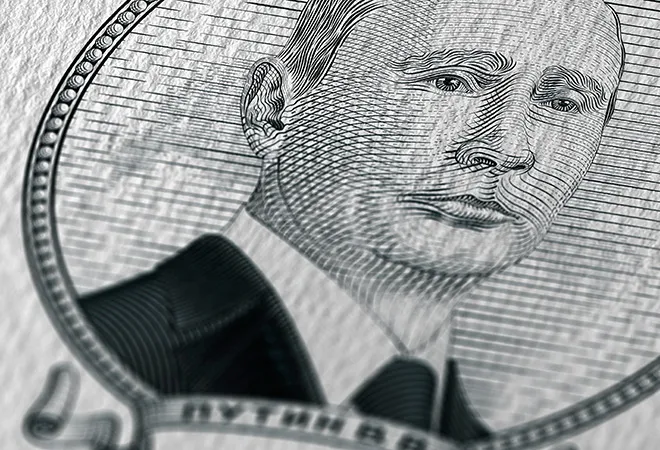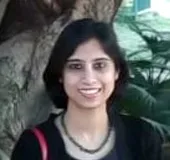-
CENTRES
Progammes & Centres
Location

If the recent constitutional amendment in Russia had not gone through, President Vladimir Putin’s presidential term would have come to an end in 2024. However, with 78 percent of Russians voting to back the proposed changes, the ‘re-set’ of his previous terms to zero has been achieved. This allows Putin to run for the post again in 2024 and 2030, if he so desires, for two six-year terms.
For any subsequent candidate, the presidential term-limit has now been set for two terms, which means that the Putin-Medvedev style swap or the current possibility of Putin running after serving four terms in office will not be possible without a constitutional amendment. While the referendum was ostensibly meant to gain popular legitimacy for about 206 proposed amendments - which contained a mix of provisions on minimum wages, pensions, appointments to federal courts and marriage as being between a man and a woman - there was never any doubt about the focal point of the vote. As has been noted, the proposed changes did not require a public vote and the sanction of both houses of the Parliament would have sufficed. The only provision that theoretically the Kremlin wanted to see pass public muster and gain public legitimacy was the one related to the presidential term.
While systemic opposition parties like the Communist Party of Russian Federation and the non-systemic opposition leaders like Alexei Navalny opposed the vote on account of it conferring Putin the ability to run again, the coronavirus pandemic reduced their ability to conduct rallies and gather popular support. Also, given that 206 amendments were bundled in a single vote -including social and economic welfare measures that had support among the people - made a focused campaign difficult to frame.
One of the arguments for zeroing of the term-limit was given as the need to avoid the lame-duck scenario and prevent a scramble around finding a successor to Putin before 2024 elections rolled around. While this reveals the role of the president among the elite in maintaining stability, it also is a symbol of weakness of Russia’s democratic institutions wherein a usual procedure of an election and a change of power is seen as a prelude to chaos. This situation arises due to the deeply entrenched patrimonial relations that have been built in the past two decades. In a system where patronage and protection among elites – political, business and bureaucratic – are deeply intertwined with the top leadership, the fear of a change at the top has been revealed most tellingly in this process.
The entrenchment of a powerful elite has also raised chances of infighting, a worsening of which is expected due to uncertainty in the absence of a powerful leader at the top. The fear around succession is a classic feature of ‘non-democratic regimes.’ As Richard Sakwa points out, the bureaucracy and elites that each have their ‘patron-client relations’ is also point to a sign of ‘failure to establish an autonomous political sphere.’ This can be seen visibly in the development of political parties in Russia, where the ruling United Russia party works not as an independent political force but as a ‘subordinate’ part of the larger ‘governing system.’
"The entrenchment of a powerful elite has also raised chances of infighting, a worsening of which is expected due to uncertainty in the absence of a powerful leader at the top. The fear around succession is a classic feature of ‘non-democratic regimes.’"
As a result, it is dependent for its political fortunes upon the Kremlin while performing the necessary role in the parliament of advancing political agenda of the presidency. The opposition parties, dealing with their own shortcomings, have been also stifled due to lack of financial and media resources that are available to the groups loyal to or created by the Kremlin. Also, the use of ‘administrative technologies’ early-on during elections to help tilt the balance in favour of a particular party has also served to dampen the prospects of the opposition. While factors like slow economic growth and the 2018 pension reforms severely dented the popularity of United Russia and caused a slump in its ratings, there was no significant commensurate benefit accrued to the opposition parties in the elections as a result. This is both due to the causes mentioned above and the indecision of the public due to a lack of credible alternatives.
The system in Russia is democratic in the sense that regular elections take place and that Putin does enjoy genuine popularity among the people. In June 2020, his popularity ratings stood at 60 percent, which while low by the usual standards of his 20-year rule, are comfortably high when compared to those of leaders in other countries. However, a regular subversion of processes and institutions to ensure favourable electoral results have hampered the development of strong institutions – including independent political parties and impartial checks and balances on the executive and legislature. Earlier, there was a hope that a less-powerful ‘future president’ would ‘rely’ on the party system more, in turn strengthening it. But a continuation of the existing system on account of Putin standing for re-election will pose the danger of a perpetuation of these trends even further.
"The system in Russia is democratic in the sense that regular elections take place and that Putin does enjoy genuine popularity among the people. In June 2020, his popularity ratings stood at 60 percent, which while low by the usual standards of his 20-year rule, are comfortably high when compared to those of leaders in other countries"
This scenario also has the potential to undermine measures introduced in the amendment to strengthen the parliament by taking away the power of the president to appoint the prime minister and the cabinet. Earlier, the president could dissolve the parliament if his choice of prime minister was rejected three times but now the Duma’s decision will be final regarding appointment of the cabinet and its head. For this to effectively function, a strong, independent, fair party system would be a pre-requisite that Russia currently lacks.
While the above scenario could unfold if Putin returns to power in 2024, the president himself has refused to make a clear commitment just yet. While his path to get re-elected has been cleared, the veteran leader has confined himself to saying that he hasn’t ‘ruled out the possibility’ as yet. As a result, while the immediate perception of him being a lame-duck president has been dealt with and passage of the amendment vote is expected to the ‘keep the elite in check,’ the broader question of succession remains, both given the long period of his already served tenure as well as his advancing age.
The Covid-19 pandemic and its impact on an economy that was already slowing down have added another element of uncertainty. Combined with the unpopularity of United Russia, reflected in its steadily falling ratings, the 2021 parliamentary elections will be a barometer of the public mood as well as crucial for the fate of United Russia. The impact of these developments and the future interference of the Kremlin into the party processes are yet unclear.
As things stand today, in the event of a return to power of Putin, it will be even more difficult to end ‘patronalism’ in Russia; further eroding the fundamentals of political institutions and democracy in the post-Soviet state.
The views expressed above belong to the author(s). ORF research and analyses now available on Telegram! Click here to access our curated content — blogs, longforms and interviews.

Nivedita Kapoor is a Post-doctoral Fellow at the International Laboratory on World Order Studies and the New Regionalism Faculty of World Economy and International Affairs ...
Read More +